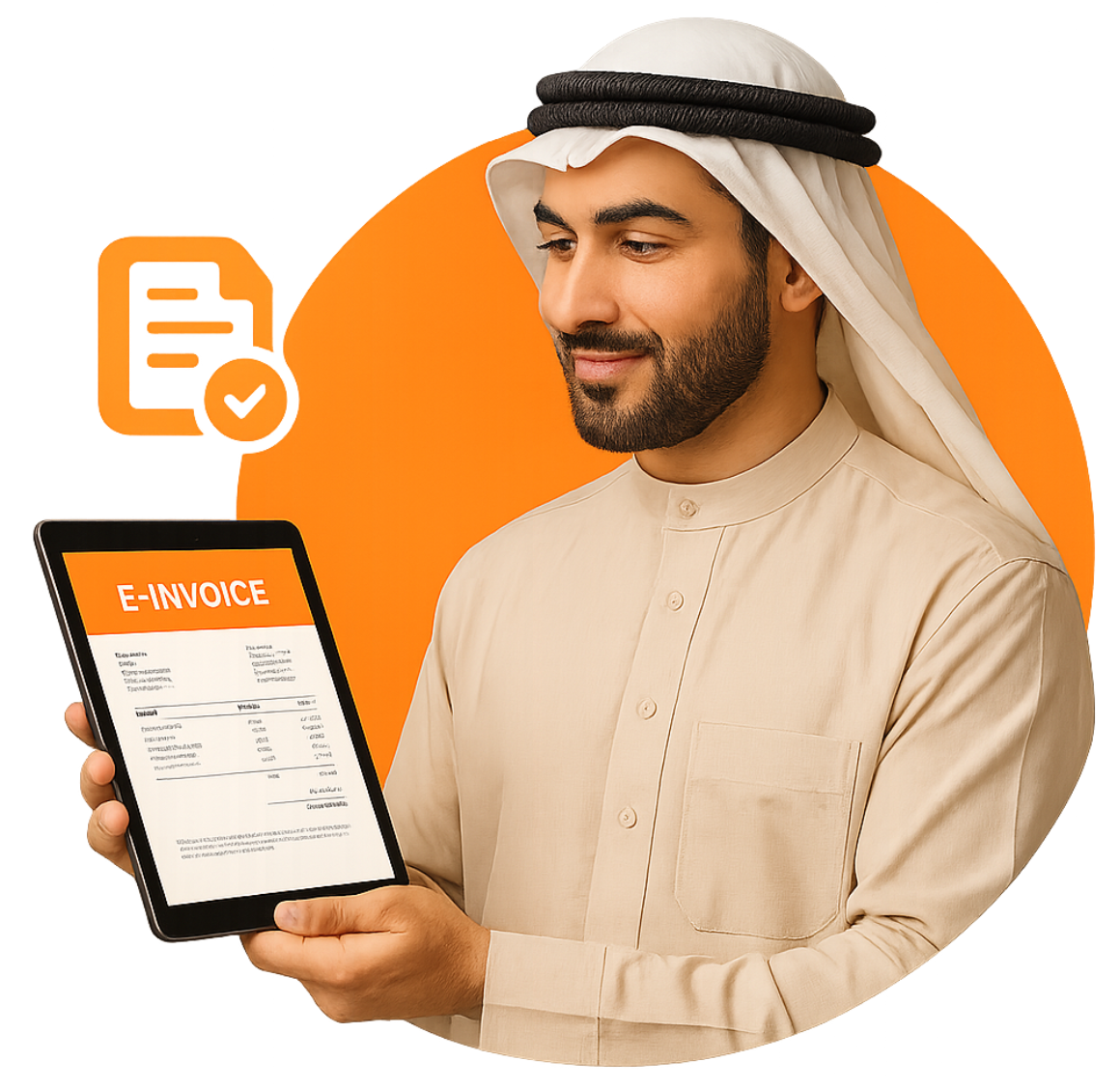Seamless Electronic Invoicing (E-Invoice) for UAE
Calculate, validate, and send compliant e-invoices with less hassle.

What is the UAE E-Invoice System (Peppol)?
E-Invoicing is the electronic exchange of invoice data in a structured format, reported in real time to the UAE Federal Tax Authority through accredited service providers. From 2026, B2B and B2G invoices must be issued electronically in the UAE.

PDFs, Word docs, and scans are not valid e-invoices.
Who needs to comply?
Regulation Overview
The UAE’s e-invoicing programme, led by the Ministry of Finance and Federal Tax Authority, introduces real-time validation and reporting of invoices. The system uses a Decentralized Continuous Transaction Control and Exchange (DCTCE) model and the Peppol 5-corner framework to ensure transparency and compliance.
How it works
The UAE eInvoicing Model: Decentralized Continuous Transaction Control and Exchange (DCTCE) / 5 corner
.webp)
UAE E-Invoice Implementation Timeline
E-Invoice Pilot Phase (Voluntary)
2027
Mandatory Einvoice
(Phase 1) for firms ≥ AED 50 million revenue
Universal E Invoice Mandate (Phase 2)for firms < AED 50 million
Federal E-Invoicing for Government
How the tool helps

Smart data prep
Organise ledgers and map accounts to UAE e-invoicing rules

Accurate validation
Check mandatory fields and XML format

Send & archive
Deliver through the PEPPOL network and store in XML + PDF/HTML
Our UAE E-Invoice Workflow
Reports you get
.png)
Submission status & error logs
.png)
Buyer and volume summaries
.png)
Sent, received, and cancelled invoices
.png)
Exportable audit pack

FAQ
No. E-invoices can be issued in English. Arabic is not required in the e-invoicing file itself.
But the FTA can ask for an Arabic version during a review, so many businesses keep bilingual invoice templates or can generate an Arabic copy when needed.
A PDF on its own is not an e-invoice.
To be compliant, your invoice has to be in a structured format (PINT AE / UBL XML) and sent through the e-invoicing system.
You can still send a PDF to your customer for viewing or printing, but the structured file is what counts for the FTA.
Yes. In practice, any business in scope for UAE e-invoicing will need an Accredited Service Provider (ASP).
You can either:
Use an ASP directly, or
Use an ERP/accounting system that connects to the e-invoicing network through an ASP.
Issuers and recipients are expected to exchange and report e-invoices through accredited providers, not by sending files manually.
E-invoicing starts with a pilot and voluntary phase from 1 July 2026.
Mandatory go-live is then phased in:
1 January 2027 – Large businesses (annual revenue ≥ AED 50 million)
1 July 2027 – Other VAT-registered businesses in scope
1 October 2027 – Government entities
So, 2026 is for getting ready. By 2027, most businesses that fall under the rules will need to be live.


.png)
.png)
.png)
.png)

